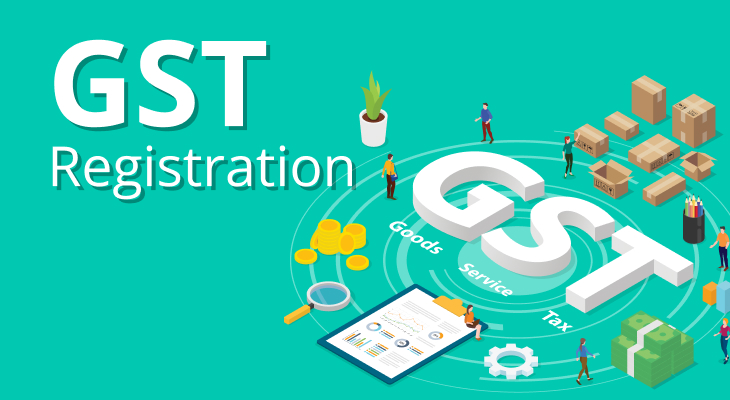Important Overview to Singapore GST Registration for New Organizations
Important Overview to Singapore GST Registration for New Organizations
Blog Article
The Ultimate Overview to Simplifying the GST Registration Process and Demands for Small Company Owners

Comprehending GST Fundamentals
To understand the basics of the Goods and Provider Tax (GST) system, local business proprietors have to initially comprehend its underlying principles and ramifications. GST is a value-added tax imposed on a lot of goods and services for residential intake. It intends to enhance the tax process by changing several indirect taxes enforced by the state and central federal governments. Under the GST routine, services are required to gather and sign up tax on behalf of the federal government, guaranteeing transparency and conformity.
One of the key concepts of GST is input tax obligation credit history, which allows companies to claim credit for tax obligations paid on their acquisitions. This system protects against the cascading impact of tax obligations and promotes effectiveness in the tax obligation system. Furthermore, GST is a destination-based tax obligation, meaning that the tax is imposed at the point of consumption instead of the factor of beginning. This guarantees reasonable circulation of tax profits among states based upon where the goods or services are consumed. Comprehending these fundamental principles is essential for tiny business owners to browse the intricacies of the GST system and ensure conformity with the law.
Qualification Standards for Enrollment
Having developed a fundamental understanding of GST concepts, little service proprietors need to currently meet specific eligibility criteria to proceed with the enrollment procedure. In India, entities took part in the supply of products or services with an annual aggregate turnover surpassing Rs. 40 lakhs (Rs. 10 lakhs for special category states) are called for to sign up for GST. In addition, particular organizations such as those entailed in inter-state supply of items, laid-back taxable individuals, and those required to pay tax obligation under the reverse fee system should register for GST irrespective of their turn over. Businesses that were signed up under the previous tax obligation program (VAT, solution tax, etc) are additionally mandated to sign up under GST. Farming businesses that only supply produce out of primary production are excluded from GST registration. It is essential for entrepreneur to carefully analyze their eligibility based on these requirements to guarantee conformity with the legislation and avoid any kind of charges for non-compliance.
Records Needed for GST Registration

Simplified Registration Refine Actions
Following the collection and verification of the requisite records, the enrollment process for GST can be navigated with a collection of streamlined actions designed to help with effective conformity for tiny company owners. Upon effective confirmation, an Application Referral Number (ARN) is released, indicating the completion of the GST registration procedure. By adhering to these streamlined actions, tiny business owners can effectively register for GST and make certain conformity with tax obligation regulations.
Tips for Ensuring Conformity
To maintain regulative adherence and functional integrity, persistent oversight and positive procedures are essential in making certain conformity with GST needs for small business proprietors. Little service proprietors need to remain upgraded with GST guidelines, submitting due dates, and any type of modifications in tax obligation prices to prevent charges and preserve a great standing with tax authorities. Attending GST awareness workshops or training programs can enhance understanding and compliance with GST regulations, eventually benefiting the company in the long run.
Conclusion
Finally, local business owners should comprehend the basics of GST, satisfy the eligibility criteria, collect essential records, and comply with the simplified registration procedure actions to guarantee compliance. By streamlining the GST enrollment process and needs, local business owners can avoid penalties and run their organizations efficiently within the legal structure - Singapore GST Registration. It is vital for small service proprietors to stay enlightened and certified with GST policies to maintain a look at this site successful service operation
Tiny company proprietors seeking GST enrollment need to ensure they collect and send the required papers to finish the enrollment procedure successfully. The papers required for GST enrollment usually include proof of business enrollment or incorporation, FRYING PAN (Permanent Account Number) card of the service entity, identity and address evidence of the promoters/partners/directors, photographs, address proof of the area of business, financial institution account declarations or terminated cheques, and permission kinds. Attending GST understanding workshops or training programs can boost understanding and compliance with GST guidelines, inevitably benefiting the service in the long run.
By streamlining the GST enrollment process and needs, small company proprietors can stay clear of penalties and run their organizations smoothly within the legal structure. It is crucial for little service proprietors to remain informed and certified with GST regulations to preserve a successful service procedure.
Report this page